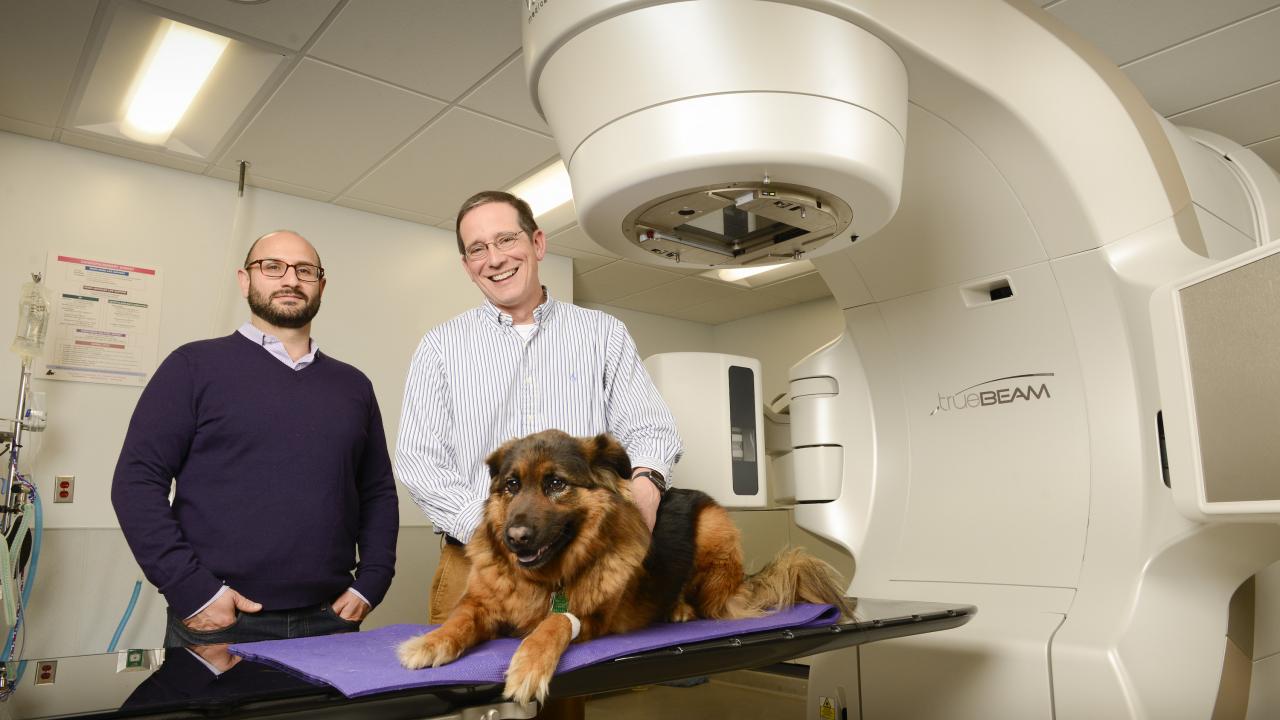
Training the Next Generation of Comparative Oncologists
UC Davis is taking a major leap forward in training the next generation of scientists engaged in basic and translational cancer research for animals and humans, thanks to a prestigious National Institutes of Health (NIH) T32 grant.
“This is the first time that the UC Davis Schools of Veterinary Medicine and Medicine have been awarded this level of support for an innovative Comparative Oncology Training Program,” said Dr. Michael Kent, a veterinary oncologist who serves as a co-principal investigator (PI) of the program. “It signals that the NIH recognizes the importance of One Health and that we can learn a lot about cancer by studying animals with cancer.”
The grant, formally known as the Ruth L. Kirschstein National Research Service Award, supports institutions to develop or enhance research training opportunities for pre and postdoctoral fellows to be trained in cancer research. UC Davis has been awarded approximately $1.9M over five years for the UC Davis Comparative Oncology T32 program, which is comprised of members from the School of Veterinary Medicine, School of Medicine, and the Comprehensive Cancer Center.
The goal is two-fold: 1) to train veterinarian- and physician-scientists, and 2) support graduate students pursuing dual DVM-PhD degrees to integrate the study of companion animals, which have naturally occurring cancers, with human cancer biology and therapy (comparative oncology). This will create a new generation of scientists engaged in basic and translational cancer research that advances the health of people and animals.
There are five positions that will be supported by this funding over a five-year period: One DVM/PhD student; three DVM graduates seeking further training; and one post MD to work in comparative oncology. Twenty-seven faculty trainers from five academic departments will provide training and mentoring to those appointed to the program to complete their proposed projects.
“This is a great example of collaboration between the medical and veterinary school,” Kent said. “Comparative oncology is one of five programs within the UC Davis Comprehensive Cancer Center. There are 51 such centers around the country that receive NCI designation and funding. The UC Davis center received its comprehensive status five years ago and is the only one in the U.S. to have a formal program dedicated to comparative oncology.”
We share biological similarities and environments with our pets, and develop many of the same medical issues, including cancer. For those reasons, our companion animals provide the best models for understanding disease process and contributing to human medical knowledge.
“Tackling complex cancer research problems should include investigators with broad experience across animal and human species presenting a unique opportunity for DVMs and MDs to have a crucial role in basic and translational research,” Kent explained in a program overview. “Veterinarians can strengthen comparative approaches essential to multidisciplinary research accelerating innovative treatments for animals and humans, while medical doctors bring a patient-centered approach linking biology with clinical therapy.”
Kent will be serving as co-PI along with Dr. Robert Canter, a surgical oncologist from UC Davis Health, and Dr. Xinbin Chin, professor of surgical and radiological sciences in the veterinary school.
“This is team science as its best,” Kent said. “With this NIH grant, we will be at the forefront of training the next generation of clinicians to do research in comparative oncology.”
